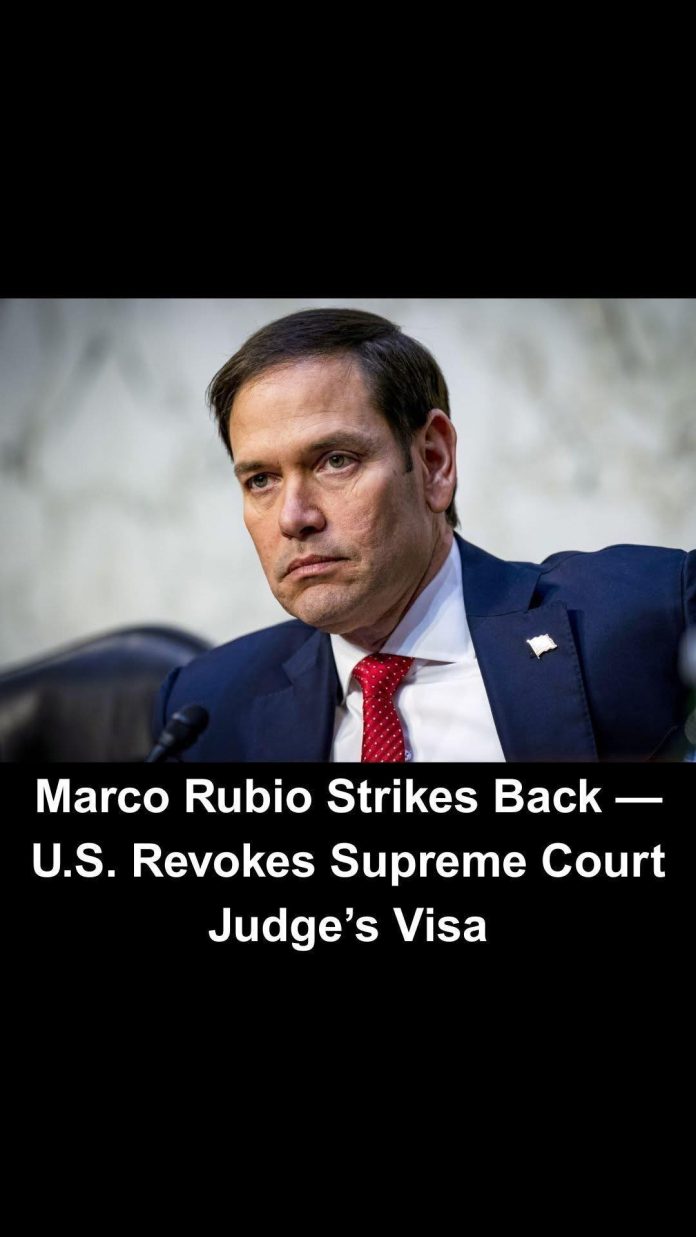The case — Lyazat Tolymbekova, et al. v. U.S. Secretary of State Marco Rubio, et al. — centers on the State Department’s handling of EB-1A visa applications, a special category designed for individuals with “extraordinary abilities” in their respective fields.
Background: Delays Spark Legal Action
The plaintiffs, a metallurgist from Kazakhstan, a project manager from Russia, and a Russian makeup artist, filed the lawsuit after their visa applications were stuck in administrative processing for over 16 months. Each applicant was told their case was placed under Section 221(g) of the Immigration and Nationality Act — a clause that allows consular officers to withhold a final decision until additional information is reviewed.
However, the plaintiffs argue that the government’s extended delay is both unreasonable and unlawful. They claim it has caused significant emotional, financial, and professional damage.
Lyazat Tolymbekova, one of the plaintiffs, said the delay has kept her separated from her U.S. citizen daughter, forcing her to miss major milestones, including her child’s college graduation and recovery from a health crisis. The other plaintiffs report similar struggles, saying the uncertainty has disrupted their careers and family lives.
Government Cites ‘Consular Nonreviewability’
In its motion to dismiss the lawsuit, the government argued that the court lacked jurisdiction based on the doctrine of consular nonreviewability, which shields final visa decisions from judicial review. Essentially, the government claimed that decisions made by consular officers abroad are not subject to court oversight — even when delays occur.
But the court disagreed.
Judge Faruqui’s Ruling: Delays Are Reviewable
Magistrate Judge Zia M. Faruqui ruled that the plaintiffs’ case can move forward because their visa applications have not been finally adjudicated. He clarified that Section 221(g) refusals are temporary, not final, meaning the court retains the authority to review whether the State Department has unlawfully delayed action.
“The government cannot hide behind the shield of consular nonreviewability when it has failed to issue a final decision,” Faruqui wrote. He pointed to the State Department’s own guidelines, which state that visa cases under Section 221(g) remain open and must eventually be re-evaluated.
In other words, because the plaintiffs are still waiting for a conclusion — approval or denial — the court found it has jurisdiction to ensure that the government fulfills its legal obligations.
Administrative Procedure Act Cited
The judge also dismissed the government’s claim of sovereign immunity, ruling that the plaintiffs have the right to seek injunctive relief under the Administrative Procedure Act (APA). This law allows courts to compel federal agencies to act when they fail to perform a duty required by law.
Faruqui emphasized that the plaintiffs are not seeking monetary damages, but rather a court order requiring the State Department to make a final decision on their visa applications.
“The APA provides a clear mechanism for individuals to challenge unreasonable delays when agencies fail to carry out their duties,” the judge wrote. “The plaintiffs here are not asking the court to dictate an outcome, only to require that a decision be made.”
State Department’s Duty to Act
Judge Faruqui noted that the State Department has a “nondiscretionary duty” to process visa applications and issue either an approval or a denial once all necessary information has been gathered. Prolonged administrative delays, he said, violate this duty.
He cited federal regulations requiring that “consular officers shall act promptly upon all visa applications” and referred to the Accardi doctrine, which holds that agencies must follow their own established rules and procedures.
“The government’s delay, in this case, is inconsistent with its obligation to adjudicate visa applications in a timely manner,” Faruqui wrote.
Human and Economic Impact of Delays
The plaintiffs’ lawyers praised the ruling as a step toward accountability. They argued that visa backlogs and delays have created hardship not only for families but also for U.S. industries that depend on global talent.
“This case highlights a growing problem — skilled professionals who qualify under the law are being left in bureaucratic limbo,” said one of the attorneys representing the plaintiffs. “Our clients have followed every rule, provided every document, and yet they remain in the dark.”
Immigration advocates say the delays in the EB-1A category — often used by scientists, artists, and innovators — are particularly damaging because these individuals contribute to economic growth and cultural exchange.
“These are not casual applicants,” one expert noted. “They are professionals with extraordinary skills that benefit the United States. Holding their applications for years undermines the integrity of the system.”
A Broader Legal Precedent
While the court did not rule on whether the delays were “unreasonable,” Faruqui’s decision allows the plaintiffs to present further evidence as the case moves forward. Legal analysts say the ruling could set an important precedent for similar lawsuits involving prolonged visa processing times.
“This case may open the door for other applicants facing years-long administrative delays to seek judicial relief,” said immigration law professor Emily Richards. “It signals that courts are willing to step in when the government drags its feet.”
Political and Administrative Context
Secretary of State Marco Rubio, who assumed the role earlier this year, has faced scrutiny from both immigration advocates and lawmakers for the department’s handling of visa backlogs. Although the COVID-19 pandemic caused significant slowdowns in consular processing worldwide, critics argue that bureaucratic inefficiencies and lack of transparency have worsened the situation.
Rubio’s office has not publicly commented on the court’s ruling. However, State Department officials have previously said they are working to address “unprecedented demand” for visas and restore normal processing times.
What Comes Next
The case will now proceed to the discovery phase, where both sides will submit additional evidence and arguments. The plaintiffs hope the court will compel the State Department to issue final decisions on their visa applications within a specified timeframe.
If the court ultimately finds that the delays were unreasonable, it could order the government to process the visas immediately — a decision that could have wide-reaching effects on other visa categories facing backlogs.
Judge Faruqui’s ruling underscores the growing tension between judicial oversight and executive authority in immigration matters. As the case continues, it will test the balance between government discretion and individual rights — and could reshape how future visa delays are handled in federal courts.

